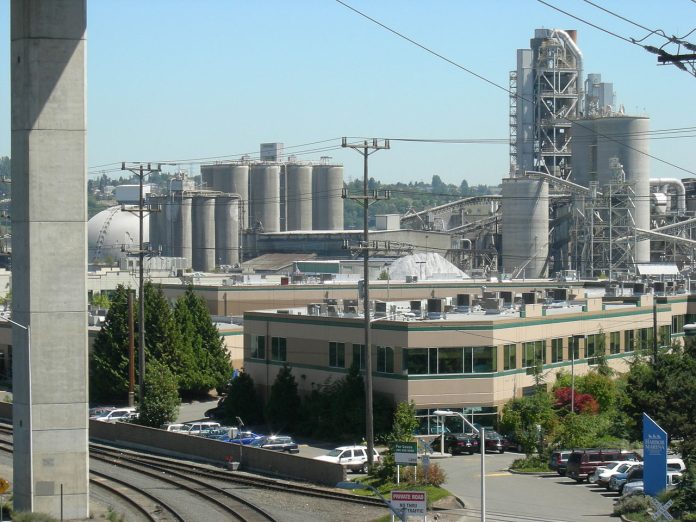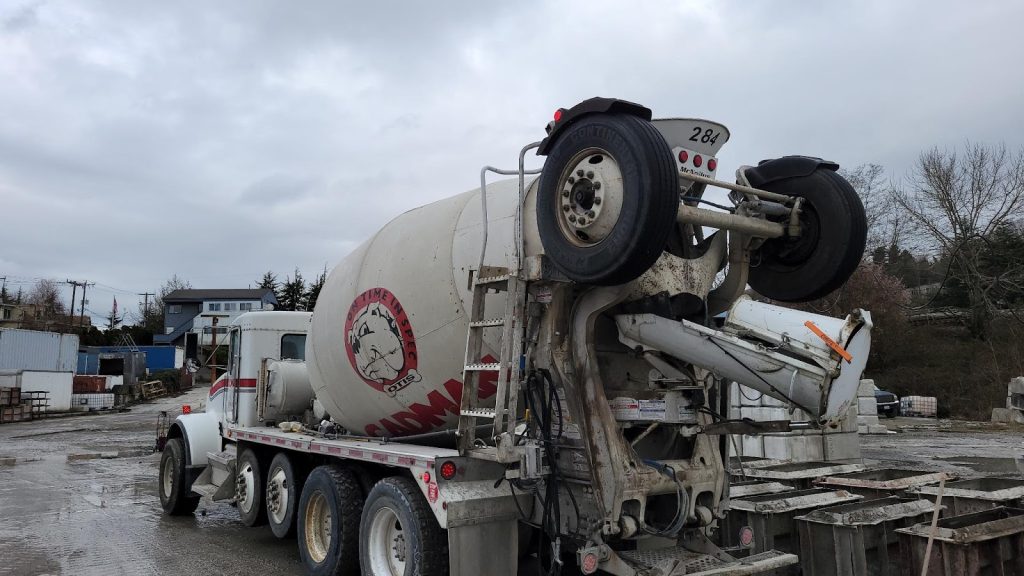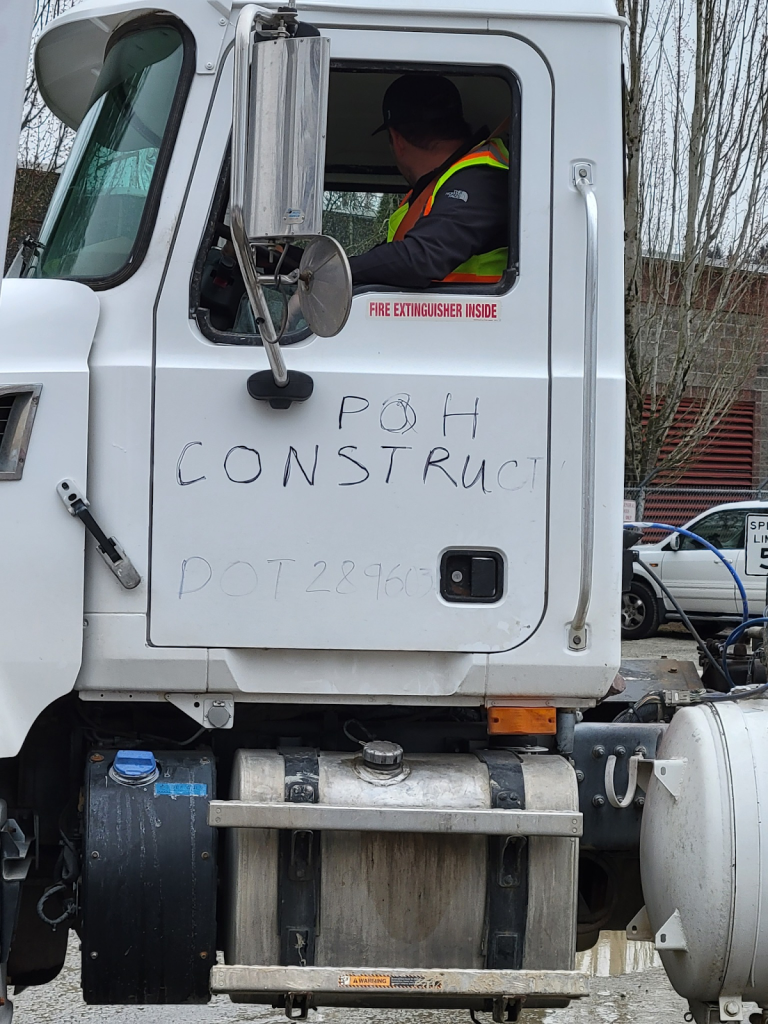
Last week, concrete drivers represented by Teamster Local No. 174 offered to return to work at three of the six concrete companies facing a strike. Those companies have mostly declined to do so, which prolongs the concrete shortage around the region. The concrete drivers’ strike is now in its 125th day. This stalemate has prompted the King County Council to pass a resolution seeking a feasibility study and implementation plan that opens the door to establishing a government-run concrete co-op. King County Executive Dow Constantine backed the study and will oversee it.
“Clearly, the local concrete industry is failing the people of King County, and I won’t let our region’s infrastructure hang in the balance,” Constantine said in a statement. “For the future of our infrastructure and our economy, the public sector must act to secure a reliable supply of concrete, even if that means manufacturing our own. While this won’t solve the stalemate today, we will begin the work to ensure taxpayers aren’t put in this position again, and to keep our region moving forward.”
Municipalizing concrete manufacture would ensure the availability of concrete for key projects around the region, such as bridge repairs, Link light rail extensions, and affordable housing developments.
“A publicly-owned source of concrete would shape a new reality where a few corporations don’t decide our fates,” said King County Councilmember Girmay Zahilay, a co-sponsor of the legislation, in a tweet. “Without a functioning concrete industry, we won’t have the foundation to build homes, public transit, or healthcare facilities. Indeed, countless projects have already stalled. This could be a matter of life and death for concrete workers and also for many others in our region.”
Despite the unanimous vote, some councilmembers sounded pretty skeptical that the County would ultimately open a publicly-owned concrete plant, but the study could also serve to ramp up pressure on the private companies to actually resume production.
“The investment necessary to build this type of infrastructure and the knowledge seems to be not really realistic,” County Councilmember Rod Dembowki said before the vote.
There had been hope that the Teamsters’ offer to return to work under their previous contract at three of the six largest concrete companies would thaw the concrete stoppage and stalled contract negotiations. However, the Teamsters report Cadman has brought only a fraction of workers back, continues to mothball its best mixer trucks, and is only operating its Seattle facility at one third of its normal capacity.
“As of yesterday, Cadman had still only returned four workers to work a week after the union graciously offered a return to work,” Teamsters wrote in a press release. “In addition to filling only four of the 31 available slots with workers, Cadman has placed the workers who have returned in run-down, old trucks unsafe for both the workers and their communities.”
The concrete companies issued a statement on March 18th offering their explanation for why so few drivers had been recalled to work and why concrete production remained anemic. “A significant amount of planning and organization is required to produce and deliver concrete,” they said. “In addition, construction projects require coordination and preparation at their jobsites prior to ordering concrete. The selected companies started planning shortly after notification by the union of the partial return.”

That statement, however, doesn’t explain the use of substandard trucks. Putting dilapidated trucks into service creates more dangerous situations for workers, the union said.
“Cadman is stooping to a new low and appears to be punishing us for striking by forcing us to drive run-down trucks that feel completely unsafe,” said Todd Parker, a concrete mixer driver with Cadman, in a statement. “I have spent more than 20 years giving Cadman all I’ve got, and yet, they are upset that we are in the streets standing up for our families, our fellow union brothers and sisters and the city we love. If they cared about delivering for the people of Seattle, they would put all of us back to work at Cadman and not delay bargaining for five days after we offered to meet last Friday. Cadman, we’re ready to get back to work for our community; now come back to the table so we can get this settled.”

Michael Walker, Teamsters Local 174 Senior Business Agent, voiced support for the County plan to municipalize concrete production.
“It was time for the government to step in and think through creative solutions so Seattle’s greedy concrete companies can never hold critical infrastructure projects hostage again,” Walked said in a statement. “These concrete companies display a level of arrogance that is reprehensible, so we welcome the government intervening and creating its own concrete co-op. Teamsters Local 174 is fighting for the betterment of Seattle, and if this is the way to accomplish that goal, then we are on board.”
Seattle Mayor Bruce Harrell appears cautiously interested in the plan as well.
“New projects and major infrastructure investments are an opportunity to reshape our City and our region for the better — further uncertainty driven by concrete manufacturing concerns cannot be allowed to derail this potential,” Harrell said in a statement. “Creative, effective, lasting solutions are in order, and I look forward to next steps as we consider this path forward.”
Sound Transit CEO Peter Rogoff also joined Executive Constantine’s press release and said a public concrete plant could reduce risk and avoid delays to much-needed public transit projects.
“The motion introduced today is a positive step to provide public agencies with more tools to manufacture the concrete that our projects need,” Rogoff said. “We are a willing partner in this effort. The feasibility study in this motion will not solve our problems overnight, but we owe it to the region and the taxpayers to look at how to reduce the risk to our projects now and in the future.”
Needless to say, relations between concrete companies and their drivers have become incredibly frayed. This has pushed the County to consider extreme measures, but a publicly-run concrete company could provide unique advantages long-term beyond the obvious labor harmony advantages. If suspicions are correct that concrete companies have been price gouging, public infrastructure projects could potentially save money down the road by cutting out the middle man — at least once startup costs are accounted for. A publicly-run entity may also be more willing to experiment and innovate, creating greener concrete alternatives that conventional manufacture, which is highly carbon-intensive.
Doug Trumm is publisher of The Urbanist. An Urbanist writer since 2015, he dreams of pedestrian streets, bus lanes, and a mass-timber building spree to end our housing crisis. He graduated from the Evans School of Public Policy and Governance at the University of Washington in 2019. He lives in Seattle's Fremont neighborhood and loves to explore the city by foot and by bike.

